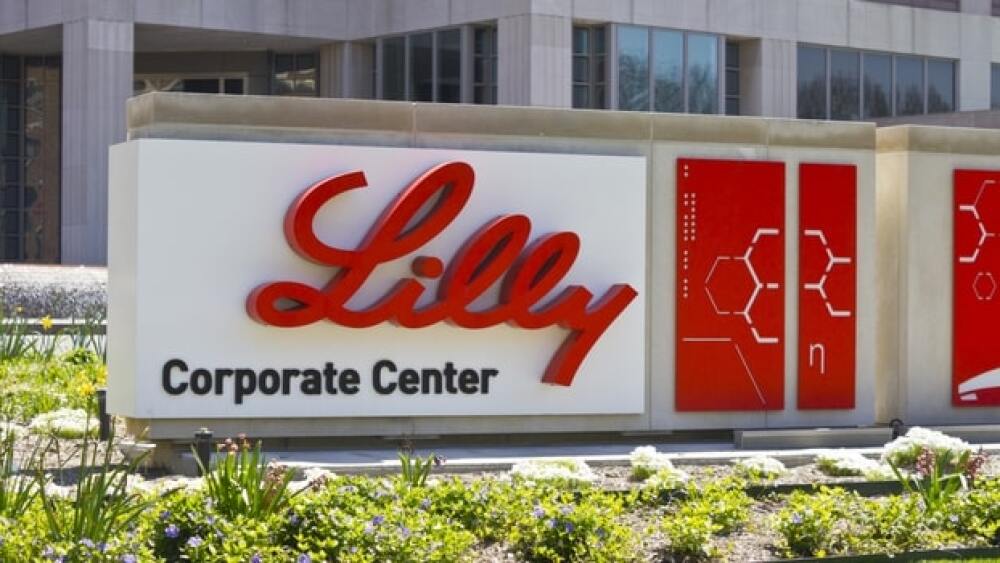The reason for the request was the monotherapy antibody therapy is less effective against the COVID-19 variants, such as have risen from the U.K., South Africa and Brazil, as well as the growing B.1.427/B.1.429 California variant.
Jonathan Weiss/Shutterstock
Eli Lilly and Company requested that the US. Food and Drug Administration (FDA) revoke the Emergency Use Authorization (EUA) for its single antibody product for COVID-19, bamlanivimab, colloquially referred to as BAM.
The reason for the request was the monotherapy antibody therapy is less effective against the COVID-19 variants, such as have risen from the U.K., South Africa and Brazil, as well as the growing B.1.427/B.1.429 California variant. The combination antibody therapy of bamlanivimab and etesevimab is both widely available and more effective.
“Lilly moved quickly to make bamlanivimab alone available as a potentially lifesaving medicine at a time when Americans were hardest hit by COVID-19,” said Daniel Skovronsky, Lilly’s chief scientific officer and president of Lilly Research Laboratories. “With the growing prevalence of variants in the U.S. that bamlanivimab alone may not fully neutralize, and with sufficient supply of etesevimab, we believe now is the right time to complete our planned transition and focus on the administration of these two neutralizing antibodies together.”
In late March, the U.S. stopped distribution BAM alone because of the increasing presence of variants. Then, earlier this month, the U.S. ended a purchase agreement for the monotherapy and canceled the remaining scheduled 350,856 doses that were planned for delivery by the end of March. That cancellation is costing Lilly approximately $440 million. Up to March 2, from about October 2020, the company had delivered more than 650,000 doses of the BAM monotherapy to states.
However, the BAM monotherapy’s absence just means that its combo therapy with BAM and etesevimab, in addition to Regeneron’s monoclonal antibody cocktail, as well as others in the pipeline, will be used more often, which are more effective against variants.
Lilly also indicated that the withdrawal request of the EUA only applies in the U.S. It is not planning on withdrawing its emergency authorization for BAM alone in other parts of the world yet. BAM alone or with etesevimab are authorized via special pathways in 20 countries outside the U.S. The combination has higher neutralization effects against most variants, including the UK (B.1.1.7) variant.
Lilly also indicated that it is collaborating with Amgen on manufacturing more of the BAM-etesevimab combination to meet global supply needs, and that moving forward it only plans to submit the combination for authorization with a full transition by June 2021.
The combination has not been authorized for use in patients who are hospitalized from COVID-19, who require oxygen therapy, or who require an increase in baseline oxygen flow rate because of COVID-19 in people on chronic oxygen therapy. The company notes the combination hasn’t been studied in hospitalized patients due to COVID-19. There have been indications of clinical worsening of COVID-19 after receiving BAM, particularly in hospitalized COVID-19 patients on high flow oxygen or mechanical ventilation.
BAM is a recombinant, neutralizing human IgG1 monoclonal antibody targeting the spike protein of SARS-CoV-2. It blocks viral attachment and entry into human cells. The therapy came out of a collaboration between Lilly and AbCellera. It was identified from a blood sample drawn from one of the first COVID-19 patients to recover in the U.S.
Etesevimab is a recombinant fully human monoclonal neutralizing antibody that binds to the SARS-CoV-2 surface spike protein receptor binding domain and blocks the virus from binding to the ACE2 host cell surface receptor. Lilly licensed etesevimab from Junshi Biosciences after it was jointly developed by Junshi Biosciences and the Institute of Microbiology, Chinese Academy of Sciences (MCAS).





